
ACU launches EthicsFinder
News 18 NovemberA message from Deputy Vice-Chancellor (Ethics) Professor Hayden Ramsay: Explore our new ‘one-stop shop’ expertly curated search engine database: EthicsFinder.
14 August 2020
Share
Prof Hayden Ramsay (Deputy Vice-Chancellor Ethics)
St John Paul II wrote more than any Pope ever has, or probably ever will. For Catholic universities, he issued on 15th August 1990 an Apostolic Constitution. This is the highest form of law-making document the popes author. But unlike legislative documents of the state, this document of the Church—“Born from the Heart of the Church” or “Ex Corde Ecclesiae”—doesn’t focus narrowly on laws but ranges widely through theology, history, academic life, administration, pastoral practice and the requirements of Catholic higher education in a multi-faith world.
It is a great treasure of the long papacy of John Paul the Great and an entry point to understanding ACU for staff of all faiths and traditions.
Universities as we know them evolved around a thousand years ago from the Church’s monastic and cathedral schools. People sometimes think medieval academics must have all thought in the same way and had no other perspectives open to them except for what the Church said. In fact, from Jesus Christ’s time on earth onwards, the Church was both learning from and contributing to the intellectual debates of Judaism, then of Graeco-Roman philosophy, and later the work of the great Muslim commentators and philosophers.
Catholic faith has always been an intellectual faith—one in constant dialogue with all thought traditions open to reason and the interchange of ideas. Hence, the claim that we value both faith and reason, and that these are not only consistent but require one another if they are to function fully.
There is easily a program of ten seminars in Ex Corde Ecclesiae, exploring its major claims and what they mean for our teaching and learning, research, strategy, communications, marketing, staffing, finance, curriculum, governance and administration and pastoral care. Perhaps there is something to be said for each Catholic university running such a seminar program for all its staff. Here, I will focus on just two ideas.
At the very opening of the document John Paul reminds us that Catholic universities must make an intellectual effort to unite two different things: the search for truth, and the certainty of already knowing the source of truth, Jesus Christ. How can we search for what we already know; isn’t that a contradiction or a limit on our academic freedom?
Well, no. Every search for truth happens within some sort of framework. Every search presumes a clear enough sense of the goal to guide the search, basic rules for the search, assumptions about the world in which that search takes place. Searching for a needle in a haystack only works if you know what you’re after, and why, and how best to get it, and what to watch out for, and how it relates to all your other searching, and so on.
For a Catholic university, the framework of understanding that guides and structures is the life and teaching of Jesus Christ, taught within the Catholic Church. It neither imposes on any discipline or demands religious faith—any more than the mission of any other university imposes on a discipline or demands faith in its vision. Every university—and every thinking person—lives with the ambiguity of both searching with fresh eyes and searching in the context of a basic philosophy of the world you already accept.
And why should that framework be Jesus Christ? A simple answer is that this is the sort of university at which we freely choose to work. But a better answer would look at the focus on intelligence within the faith which Christ and the tradition erected in his name propose. His life and teaching and the academic tradition back to the early Church Fathers and mediaeval scholars make up a university on earth even before there were Chancellors to establish them.
Not all of us believe in Jesus Christ’s divinity but I have yet to meet someone who rejects his humanity. This was quite simply the most beautiful life and its message of active charity and courageous contemplation of life’s most confronting questions is irresistible.
Secondly, I’d like to say something at this time about the document’s focus on the type of community that is a university. The first universities were communities of scholars – both teachers and students who were engaged in a common enterprise that they thought not only worthwhile but genuinely exciting. The academic project inspired who they were and what they did together. And they were inspired by those descriptions of the early Christians who shared what they had in common – not just their possessions but their searching and finding, their little wisdom, their big enthusiasm. Sharing the life of the mind with each other may not be how those who fund us and regulate us primarily regard universities today, but it is our genesis.
Those first universities, like those first Christian communities, knew that this ‘vocation’ is not always easy, that it requires a certain kind of character that is both tested and formed by the unique kind of community a Christian university is, and that it requires the academic, emotional and spiritual supports that only such a community can provide. With societies and characters tested in 2020 as rarely before, Ex Corde Ecclesiae reminds us that truth and community sustain each other and conjoined they can heal us from every ill.
This article featured in Staff News along with a series of reflections from ACU senior leaders on the 30th anniversary of Ex Corde Ecclesiae.

A message from Deputy Vice-Chancellor (Ethics) Professor Hayden Ramsay: Explore our new ‘one-stop shop’ expertly curated search engine database: EthicsFinder.

The ACU Sustainability Report 2020 has been published and is available for you to read on the ACU website.
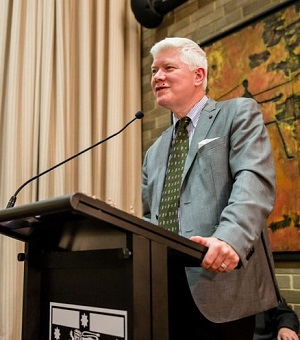
The expression ‘ethical dilemma’ has become overused and often applied without much if any thought about what it actually means

Professor Hayden Ramsay, DVC and Professor of Catholic Philosophy, presents a 12 part series of videos and articles in his Masterclass on Any Catholic University

The PM Glynn Institute has produced a report on palliative care within Australia
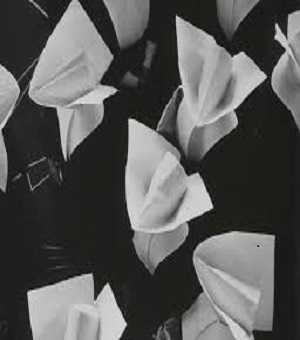
Lord Rowan Williams recently published book Tribalism's Troubles: Responding to Rowan Williams, launches in a virtual event held this week by the PM Glynn Institute

New ACU research is showing how busting a move via silent disco technology can boost the wellbeing of residential aged care residents with dementia.
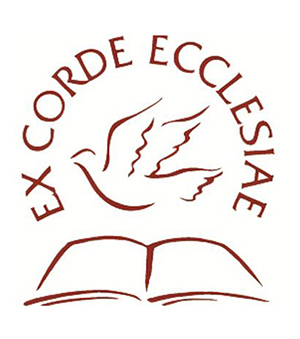
The 30th anniversary of Ex Corde Ecclesiae (From the Heart of the Church) is an opportunity for us, as Australia’s largest Catholic University, to reflect on our character and role.
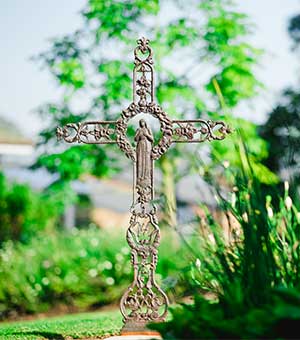
It is a great treasure of the long papacy of John Paul the Great and an entry point to understanding ACU for staff of all faiths and traditions.

Australian Catholic University (ACU) has appointed Professor Zlatko Skrbis as the University’s next Vice-Chancellor and President.
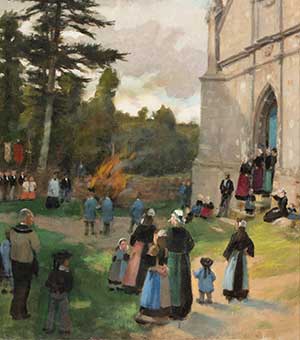
Thirty scholarship students will be the first to undertake the new Bachelor of Arts (Western Civilisation) at Australian Catholic University’s (ACU) North Sydney Campus next year under a generous fund...

Australia's workforce, economy and society needs the capabilities of a humanities education: critical thinking, analytical and research skills, and the ability to grapple with and communicate complex ...

Some people don’t support Glasgow Rangers, mindfulness or Country and Western music. Everyone supports ethics; which doesn’t mean everyone fully understands ethics or always acts ethically, but it doe...
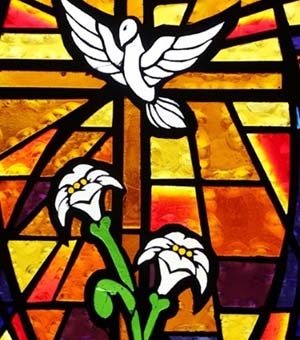
Are faith and reason in conflict, or do they illuminate one another? We tackle an age-old question with Professor Hayden Ramsay, a Catholic philosopher and ACU’s Deputy Vice-Chancellor, Coordination.
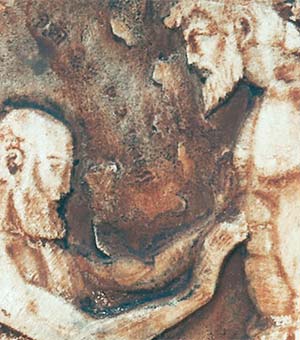
ACU’s exploration of advance care planning, which enables patient wishes to inform decisions made by families and medical professionals and to respect patient autonomy and dignity, has led to the deve...
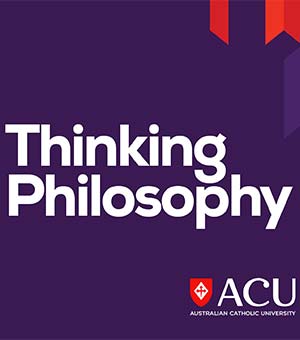
ACU last week launched Thinking Philosophy, a podcast exploring the research of our philosophers.

ACU expects to offer a new BA degree in Western Civilisation from 2021, after signing a Memorandum of Understanding (MOU) with the Ramsay Centre for Western Civilisation in Sydney today.
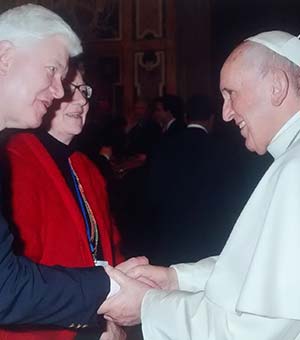
Leading British philosopher Professor John Haldane will join the Australian Catholic University this year to establish a new project to develop Catholic school education, situating this within a broad...

People who pursue beauty, fame and money above other goals are less happy than those who want to improve the world, new research has found.
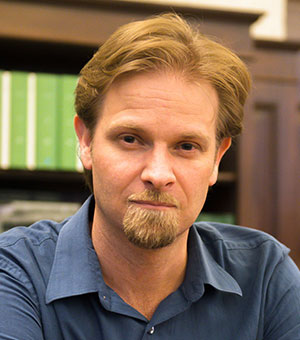
Professor Stephen Finlay has been appointed as the Director of a new institute dedicated to philosophical research at Australian Catholic University (ACU).